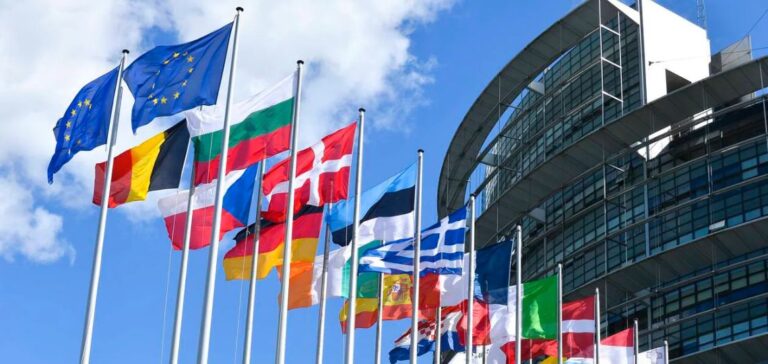Discussions on Iran’s nuclear programme took a new direction on April 12, when Iran and the United States, without diplomatic relations since 1980, began negotiations mediated by the Sultanate of Oman. These talks come amid rising tensions, with Iran now “very close” to acquiring nuclear weapons, according to Rafael Grossi, Director General of the International Atomic Energy Agency (IAEA). Although the 2015 nuclear agreement was primarily negotiated by Europeans, they now find themselves sidelined in the current discussions, marking a significant shift in this diplomatic issue.
Europeans sidelined
Since the United States’ withdrawal from the nuclear deal in 2018 under the Trump administration, European countries, which were key players in the initial negotiations, have continually lost influence. Although France, the United Kingdom, and Germany, members of the E3 group, were involved in follow-up discussions with Iran, particularly in October, November, January, and February, they are now merely observers, with no direct role in the current negotiations. Iran and the United States, with Oman’s mediation, have chosen to focus the discussions on a bilateral framework, leaving the Europeans aside.
The limited role of Europeans
Despite their secondary position, Europeans continue to support the diplomatic initiative. However, their role now appears limited to verbal support. As David Khalfa from the Jean-Jaurès Foundation points out, while Europeans initially facilitated the negotiation process, their ability to influence the agreement is now restricted. Ali Vaez from the International Crisis Group explains that this situation stems from a series of decisions made over the years, particularly the U.S. withdrawal under Donald Trump, which profoundly altered the dynamics of the negotiations.
The “snapback” mechanism as the last leverage
Despite their marginalisation, Europeans retain an important leverage: the “snapback” mechanism, which allows for the re-imposition of international sanctions in response to violations of the nuclear agreement by Iran. This mechanism could play a crucial role if Iran deviates from its commitments. However, as Thierry Coville, a researcher at the Institute of International and Strategic Relations (IRIS), notes, this leverage is now perceived as limited, especially due to the United States’ reluctance to involve the European Union in the negotiations. Moreover, activating the “snapback” could lead to an escalation of tensions, with risks of negative side effects, such as Iran’s withdrawal from the Nuclear Non-Proliferation Treaty (NPT).






















